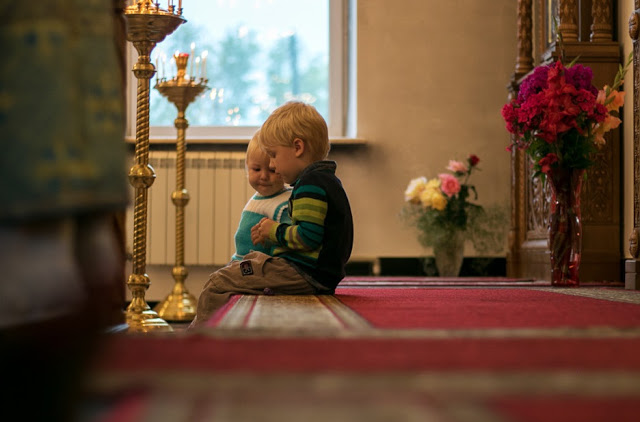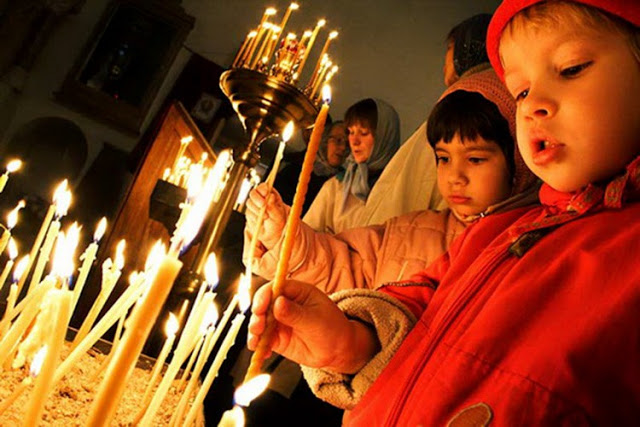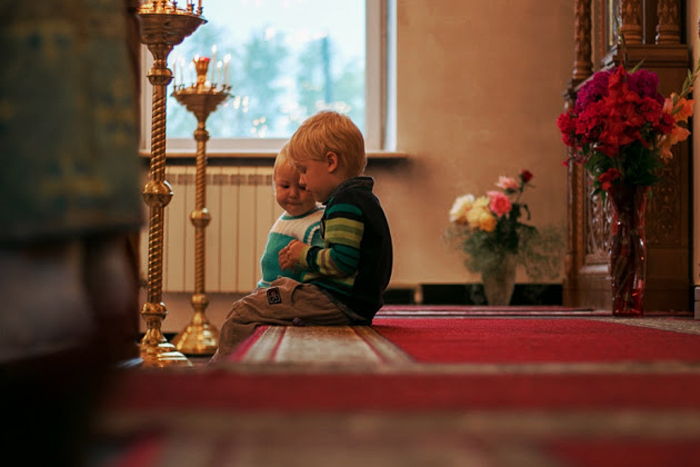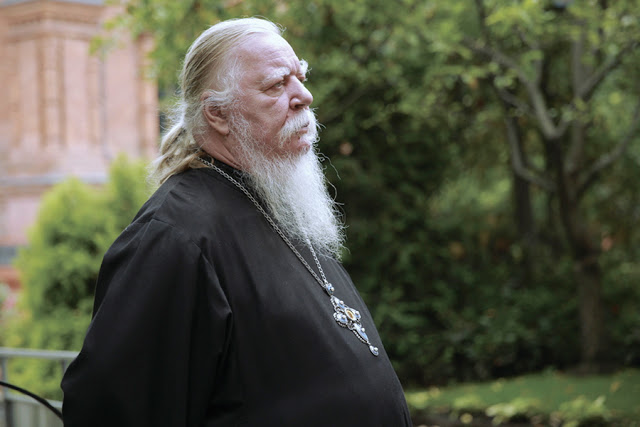
As a general rule, children like attending Church, and this instinctive attraction to and interest in Church services is the foundation on which we must build our religious education. When parents worry that children will get tired because services are long and are sorry for them, they usually subconsciously express their concern not for their children but for themselves. Children penetrate more easily than do adults into the world of ritual, of liturgical symbolism. They feel and appreciate the atmosphere of our Church services. The experience of Holiness, the sense of encounter with Someone Who is beyond daily life, that mysterium tremendum that is at the root of all religion and is the core of our services is more accessible to our children than it is to us. “Except ye become as little children,” these words apply to the receptivity, the open-mindedness, the naturalness, which we lose when we grow out of childhood.
How many men have devoted their lives to the service of God and consecrated themselves to the Church because from childhood they have kept their love for the house of worship and the joy of liturgical experience! Therefore, the first duty of parents and educators is to “suffer little children and forbid them not” (Matt. 19:14) to attend Church. It is in Church before every place else that children must hear the word of God. In a classroom the word is difficult to understand, it remains abstract, but in church it is in its own element. In childhood we have the capacity to understand, not intellectually, but with our whole being, that there is no greater joy on earth than to be in Church, to participate in Church services, to breathe the fragrance of the Kingdom of Heaven, which is “the joy and peace of the Holy Spirit.”

Church attendance should be complemented from the earliest days of childhood by the home atmosphere, which precedes and prolongs the mood of the Church. Let us take Sunday morning. How can a child sense the holiness of that morning and of that which he will see in Church if the home is full of the blare of radio and TV, the parents are smoking and reading the papers, and there reigns a generally profane atmosphere? Church attendance should be preceded by a sense of being gathered in, a quiet, a certain solemnity. The lighting of vigil lights before the icons, the reading of the Scripture lessons, clean and fresh clothes, the festively tidied-up rooms – so frequently parents do not realize how all these things shape the religious consciousness of the child, make an imprint which no later tribulations will ever efface. On the eve and on the day of Sundays and Church feasts, during Lent, on the days when we prepare ourselves for Confession and Communion, the home must reflect the Church, must be illuminated by the light that we bring back from worship.
And now let us speak of the school. It seems self-evident to me that to organize so-called “Sunday School” lessons during Divine Liturgy is in deep contradiction with the spirit of Orthodoxy. The Sunday Liturgy is a joyful gathering of the Church community, and the child must know and experience this long before he is able to understand the deep meaning of this gathering. It seems to me that the choice of Sunday for church school is not a very good one. Sunday is primarily a liturgical day; therefore, it should be Church-centered and Liturgy-centered. It would be far better to have church school on Saturdays before the Vigil or Vespers service. The argument that parents cannot and will not bring children to church twice a week is merely admitting indolence and sinful negligence of what is important to our children. Saturdayevening is the beginning of Sunday and should be liturgically sanctified just as much as Sunday morning. Why, in all Orthodox churches the world over Vespers or the Vigil is served on the eve of Feasts and Sundays. There is no reason why we too cannot arrange our church life according to principle: School—Vespers—Liturgy, where School would be for children the essential preparation and introduction to the Day of the Lord, His resurrection.




